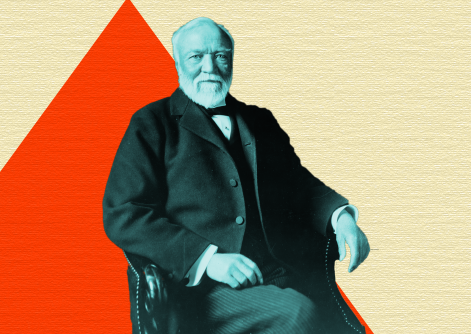The willingness of Paul Brest, former president of the Hewlett Foundation, to continue engaging William Schambra and myself in a dispute about the role of social science in philanthropy is a model for all of us. I thank him for the honor and hope his bravery is contagious.
For those just tuning in, Brest and his successor as head of Hewlett, Larry Kramer, each wrote responses to a speech that William Schambra of the Bradley Center for Philanthropy and Civic Renewal was invited to give to Hewlett itself. Schambra critiqued the “strategic” philanthropy championed by both men, they responded, and I weighed in.
Now Brest has kindly made the following comment (in its entirety) on my piece:
Just consider Scott’s strong implicit reliance on social science when he writes: “Coulson found no correlation whatsoever between which charter networks received the most funds and which networks had the most powerful effects on their students’ test scores. … Coulson also is wise enough to know, and has other stats to show, that countries like Sweden and Chile, which allow ordinary parents to exercise their wisdom and local knowledge to choose their children’s schooling, end up causing money to flow far more efficiently to the best schools.” How, except through social science, would one know what the best schools are?
I freely concede that in the passage Brest quotes, I accepted the social science perpetrated by Andrew Coulson of the Cato Institute, which showed that over the course of eight years and hundreds of millions of dollars, dozens of foundation were highly unwise in the way they channeled their money to K-12 charter school networks in California. I also believe the social science which shows that ordinary parents in Chile and Sweden were far wiser in the way they channeled their money to schools in those countries, where much more of a free market in education exists.
But just as earlier Brest unfairly ascribed to Schambra the view that natural science has no value, so he unfairly ascribes to me the claim that social science has no value. My citing Coulson’s work shows that I acknowledge some value in social science for seeing part of reality.
But note that in the very passage Brest highlights, I explain that Coulson was unsurprised by his own number-crunching, “because he is wise enough to know that foundations no less than governments, however strategic and scientific they try to be, can’t have the wisdom or local knowledge to pick winners and losers in such a race.”
In other words, a person possessed of wisdom about human nature would know, even before he began his first regression analysis of any data set, that millions of parents are more likely to pick good schools for their children than dozens of foundations, including ones like Gates and Broad, the largest donors in the study, both of whom pride themselves on their smarts and their social science. (Let me add that Hewlett, Coulson informs me, did better than Gates or Broad because it mainly gave money to the KIPP charter network, which is far above average, though Hewlett did not give anything to the two highest rated networks of all.)
I wish Brest had addressed himself to my claim that
the crux of this dispute … lies in two questions:
1. Should wisdom be valued over social science?
2. Do ordinary citizens possess sufficient wisdom about their community to be important partners in efforts to improve their community?
I don’t dispute that social science can be a useful tool for philanthropists and others, even if it often serves mainly to prove things that one can know through other means. But social science is a limited tool and one that must be subordinated to wisdom. Wisdom may come from our fellow human beings who have deep knowledge of their local communities, whether or not they have impressive academic credentials, and it may also come from persons, even academics, who have thought deeply about the human condition as displayed in history, literature, philosophy, and religion.
I plead for an ecumenical philanthropy willing to engage all these sources of knowledge and wisdom, but I see in much of philanthropy, especially at the multi-billion-dollar level, little to no engagement with anything besides social science of varying quality and center-left political ideology.
One of the best exceptions to this rule is precisely Brest’s own championing of debate during and after his tenure at Hewlett, but of course he failed in his comment to respond to my facetious question, What social science stats led him to think such debate would improve Hewlett’s philanthropy? We could add, Does Brest now have social science statistics that prove debate has improved Hewlett’s philanthropy?
Let me briefly note a few other questions of mine that went unanswered in Brest's comment:
1. Is Schambra’s preference for the advice of a neighborhood wisewoman over the advice of a young social science dilettante who just arrived in the neighborhood “merely” a matter of taste?
2. Are there many examples of grants by big foundations that rely excessively “on the unsystematic anecdotal experience of local participants” (aka, “citizens”)?
3. Is there no profound difference between natural science and social science?
4. Can someone provide instances where philanthropy has heavily relied on social science to tackle non-medical human problems (e.g., unwed motherhood or “income inequality”) and had the same kind of obvious success as earlier philanthropy achieved with the problems of hookworm and cholera?
5. Is Schambra correct that “by any standard—other than that of human decency—eugenics was a spectacular example of effective strategic philanthropy”?
6. Does the role of community loom large in “strategic” philanthropy? If not, why not?
Let me close with a few thoughts from a Nobel-winning social scientist, Friedrich Hayek, whose work The Counter-revolution of Science: Studies on the Abuse of Reason I recommended in my last post. This 1952 book provides the history of efforts to use the methods of “the physical and biological disciplines” in other disciplines, to harmful effect.
First, Hayek observes that many of the seminal thinkers in this development were not true friends of the “hard” sciences:
Francis Bacon opposed Copernican astronomy, and [the founder of sociology Auguste] Comte taught that any too minute investigation of the phenomena by such instruments as the microscope was harmful and should be suppressed.…
Second, Hayek notes that in "social engineering" our temptation to love of power is in play, struggling against the traditional wisdom of morality: “While the progress of the natural sciences constantly extends the range of conscious control,” Hayek writes, “the moral sciences tend to show us … limits to our conscious control.”
I will happily take as my own conclusion the one Hayek provides in his chapter on “Engineers and Planners”:
The great misfortune of our generation is that the direction which by the amazing progress of the natural sciences has been given to its interests is not one which assists us in comprehending the larger process of which as individuals we form merely a part or in appreciating how we constantly contribute to a common effort without either directing it or submitting to orders of others. To see this requires a kind of intellectual effort different in character from that necessary for the control of material things, an effort in which the traditional education in the “humanities” gave at least some practice, but for which the now predominant types of education seem less and less to prepare. The more our technical civilization advances and the more, therefore, the study of things as distinct from the study of men and their ideas qualifies for the more important and influential positions, the more significant becomes the gulf that separates two different types of mind: the one represented by the man whose supreme ambition is to turn the world round him into an enormous machine, every part of which, on his pressing a button, moves according to his design; and the other represented by the man whose main interest is the growth of the human mind in all its aspects, who in the study of history or literature, the arts or the law, has learned to see the individual as part of a process in which his contribution is not directed but spontaneous, and where he assists in the creation of something greater than he or any other single mind can ever plan for….
… all we have said here is directed solely against a misuse of Science, not against the scientist in the special field where he is competent, but against the application of his mental habits in fields where he is not competent…. The main lesson at which we have arrived is indeed the same as that which one of the acutest students of scientific method has drawn from a survey of all fields of knowledge: it is that “the great lesson of humility which sciences teaches us, that we can never be omnipotent or omniscient, is the same as that of all great religions: man is not and never will be the god before whom he must bow.”
FOOTNOTE: Hayek is quoting M.R. Cohen’s Reason and Nature. He adds that Ludwig Feuerbach, a leader of the movement to abuse science who strongly influenced Marx, takes “as his guiding maxim” the opposite principle: homo homini Deus (“man is God to man”).







Thanks to Paul Brest for continuing the discussion, even when busy. Here’s the article he recommends in his comment below:
http://www.ssireview.org/articles/entry/listening_to_those_who_matter_most_the_beneficiaries
I note that its authors seem somewhat less sanguine than he about how much attention the nonprofit world pays to the communities it tries to help:
“too often nonprofits and funders ignore the constituents who matter most, the intended beneficiaries of our work: students in low-performing schools, trainees in workforce development programs, or small farmers in sub-Saharan Africa. In bypassing the beneficiary as a source of information and experience, we deprive ourselves of insights into how we might do better—insights that are uniquely grounded in the day-to-day experiences of the very people the programs are created for.
“Why don’t we place greater value on the voices of those we seek to help? Why don’t we routinely listen to our most important constituents?”
“The organized charity, scrimped and iced
In the name of a cautious, statistical Christ”
John Boyle O’Reilly, quoted by Robert Bremner in “Scientific Philanthropy”
Short of scientific certainty and acquired wisdom is the practical virtue of prudence. This is the Pro-methean virtue of foresight, with parallels to the Christian concept of Pro-vidence.
Prometheus brought fire to assist men . The flame/torch is often a symbol of wisdom, as well as a manifestation of the Holy Spirit. We require light to see by, especially when we seek to discern future consequences of our actions.
Such looking forward requires us to bring tools of both reason and our accumulated wisdom to bear. Neither is dispensable. But it also means that we must have humility about both our own wisdom and the tools we use. We can ascribe too much power to either one, which is to commit the error of hubris.
In using tools of natural and/or social science, it is therefore imperative that we understand the tools and what they are good for and what their limitations are. In bringing wisdom to bear on setting ends, it is imperative that we understand that human action is largely indeterminate… patterns can be discerned, but a form of Humean skepticism may very well be in order when we are seeking to affect the lives of other men through our beneficence.
(This is a skepticism perhaps less necessary when we are in exchange relationships where we do not presume to set the other’s ends and merely seek to exchange fairly with the result that we mutually assist one another with our discrete goals.)
I would love to engage at greater length, but I’m in the midst of teaching a marathon 4 unit course in two weeks at the National University of Singapore Business school. So briefly, in response to Scott’s two fundamental questions:
Q. Should wisdom be valued over social science?
A. If “wisdom” refers to bodies of knowledge accumulated and tested over decades or centuries, then it comes with a strong presumption of truth that would require strong social science evidence to reject.
Q. Do ordinary citizens possess sufficient wisdom about their community to be important partners in efforts to improve their community?
A. Of course, and though I’m sure there are plenty of examples of foundations’ ignoring communities, no sensible philanthropist would do so. Again, I would refer to the cogent article on Listening to Those Who Matter Most, whose lead author, Fay Twersky, developed the Gates Foundation’s Impact Planning & Improvement unit and now directs the Hewlett Foundation’s Effective Philanthropy Program.
All of this said, I certainly agree with Bill Schambra and Scott Walter that it is unfortunate that, a century ago, foundations did not disavow the widely-shared folk “wisdom” in support of eugenics.